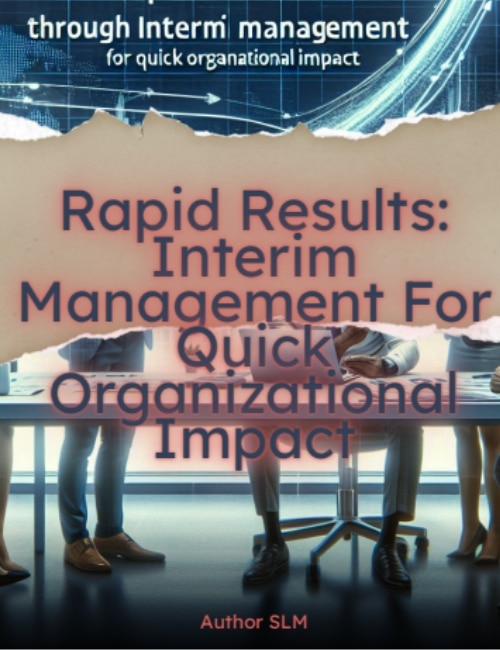How to Prepare Your Company for Working with an Interim Manager or an Outsourced Team
In today’s fast-paced world of constant change, performance pressure, and evolving needs, more and more companies are turning to interim managers or outsourced teams. Whether it’s to manage a transitional period, lead a transformation, or bring a fresh perspective – external specialists can be a key success factor.
However, to ensure the collaboration delivers real value, it’s essential to properly prepare the organization. Here are a few practical steps that can help increase effectiveness and reduce misunderstandings.
1. Define Expectations and Objectives
The first step is to clearly articulate what you expect from the collaboration. An interim manager is not a “magic fix,” but a partner with a specific task:
Managing a crisis
Driving change
Leading a project
Bridging a gap between key roles
Goals should be measurable, time-bound, and realistic. Without clear direction, even the best expert will struggle to add value.
2. Communicate the Why and the Value to Your Team
One of the most common barriers to working with external experts is distrust or concern from the internal team. Employees may feel threatened, bypassed, or scrutinized.
That’s why it’s critical for leadership to:
Communicate the reasons for engaging an interim manager or outsourced team transparently
Emphasize that this is support, not replacement
Involve key staff in the process
Open communication fosters collaboration rather than resistance.
3. Prepare the Environment and Processes
An external professional needs quick access to information, tools, and people to be effective. Preparation should include:
Assigning a clear point of contact or “sponsor”
Providing access to systems and documentation
Defining decision-making authority
It’s also smart to agree on how updates, feedback, and performance evaluation will be handled.
4. Be Open to a Fresh Perspective
An interim manager often brings a clear-eyed, outsider’s view. They may highlight blind spots, inefficient processes, or long-standing routines that no longer serve the business.
It’s important not to resist critique, but rather to see it as an opportunity for improvement. The real value of an interim expert often lies in their ability to say what others won’t.
5. Plan for Handover and Sustainability
Every collaboration has a beginning, middle, and end. From the start, it’s wise to plan how knowledge and progress will be transferred to your team once the partnership ends.
Make sure that:
Documentation, guidelines, and recommendations are created
The internal team is prepared to take over
The impact and outcomes of the project are properly evaluated
Working with an interim manager or outsourced team can significantly accelerate your company’s development – if you’re well prepared. See this type of partnership as an investment in agility, expertise, and adaptability. In today’s business world, the ability to respond quickly is often a key competitive advantage.
















